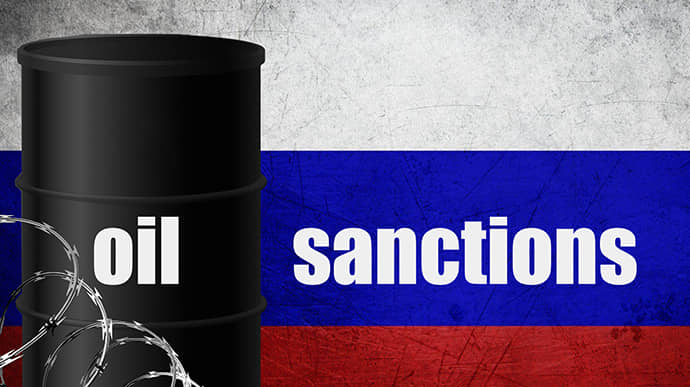Details emerge of how EU may restrict Russian oil exports in new sanctions package
The EU member states' ambassadors held the first round of discussions on the new 12th package of sanctions against Russia, which includes additional Russian oil restrictions, on Friday, 17 November. Source: European Pravda, citing Reuters Details: The European Commission's proposal suggests banning the sale of tankers transporting crude oil and oil products to Russia to prevent Moscow from attempting to circumvent Western sanctions on Russian oil through a "shadow fleet".

The EU member states' ambassadors held the first round of discussions on the new 12th package of sanctions against Russia, which includes additional Russian oil restrictions, on Friday, 17 November.
Source: European Pravda, citing Reuters
Details: The European Commission's proposal suggests banning the sale of tankers transporting crude oil and oil products to Russia to prevent Moscow from attempting to circumvent Western sanctions on Russian oil through a "shadow fleet".
Any sales of EU tankers to third countries should include a prohibition that the vessels cannot be resold to Russia or used to transport Russian oil or oil products that do not meet the US$60 per barrel price cap.
"The price cap mechanism relies on an attestation process that enables operators in the supply chain of sea-borne Russian oil to demonstrate that it has been purchased at or below the price cap," Reuters reported, citing the document as saying.
Rikard Jozwiak, Radio Liberty's correspondent in Brussels, noted that Hungary "put full reserve on entire package" during Friday's discussion of the new sanctions.
Background:
- Previously, the Financial Times reported that the EU plans to instruct Denmark to inspect and potentially block tankers carrying Russian oil passing through its waters amid Western attempts to impose a price cap on the oil, which Russia has learned to circumvent.
- In December 2022, the Group of Seven, the European Union and Australia imposed a US$60 per barrel cap on Russian oil exports by sea. It prohibits Western companies from transporting, insuring, and paying for oil sold at a price higher than this limit.
- However, this year's rise in global oil prices has led to a significant portion of oil from Russia being traded at a price above US$60, which virtually offsets the effect of Western sanctions.
Support UP or become our patron!



